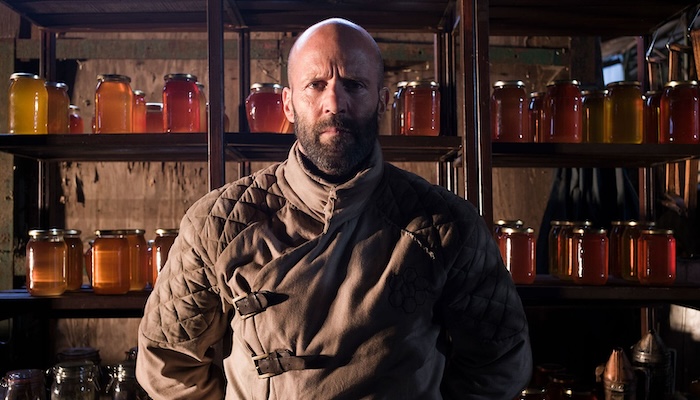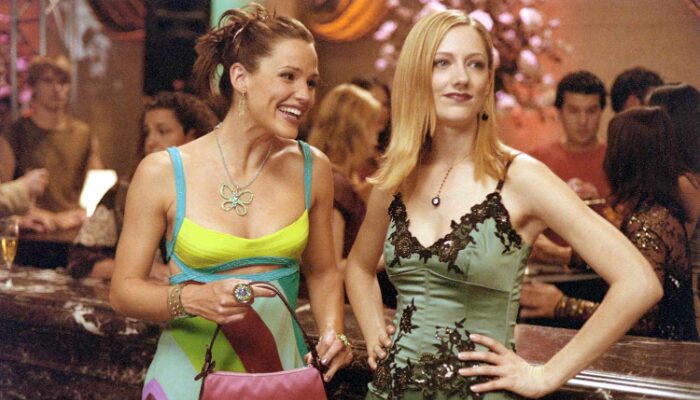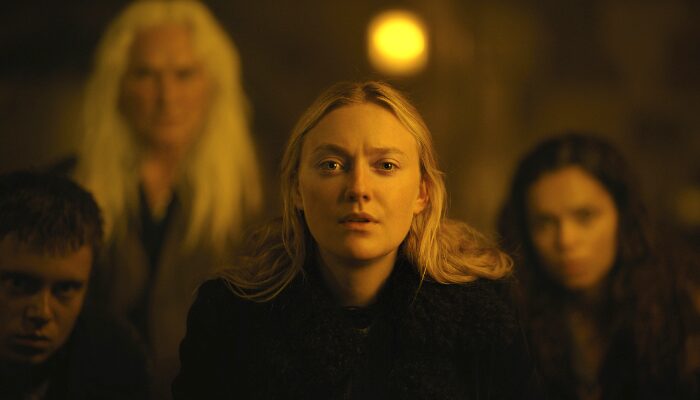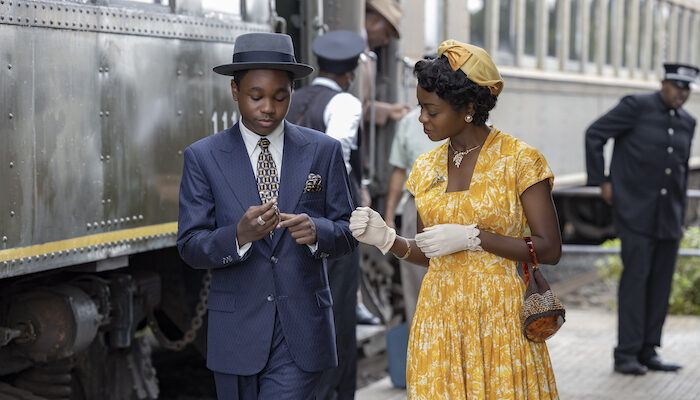Film Review: TILL (2022): Danielle Deadwyler’s Portrayal Dominates Account of Lynchpin Bigotry
Till Review
Till (2022): Film Review, a movie directed by Chinonye Chukwu, written by Keith Beauchamp, Chinonye Chukwu, and Michael Reilly, and starring Danielle Deadwyler, Jalyn Hall, Whoopi Goldberg, Sean Patrick Thomas, John Douglas Thompson, Haley Bennett, Sean Michael Weber, Eric Whitten, Njema Williams, Darien Rolle, Frankie Faison, Keith Arthur Bolden, Tosin Cole, Jayme Lawson, Brendan Patrick Connor, and Tim Ware.
Till is the story of Mamie Till-Mobley’s quest for justice after her son Emmett’s lynching in the Deep South.
This account of Emmett Till’s date with destiny begins in the crossfire between the assassination of civil rights activist Lamar Smith a week before Emmett’s arrival and the Montgomery Bus Boycott. The specifics of the inciting incident remain debatable even now, after so many revisions, retractions, and recantations of the events over the decades.
The plot of this film, however, begins in Chicago. Emmett’s great-uncle, Mose Wright, visits and shares stories of the family’s roots in the Mississippi Delta, where he is a sharecropper. Fascinated by these stories, Emmett — nicknamed ‘Bo’ by his mother, Mamie — wants to accompany Mose when he returned home. And so he does, along with two of his cousins.
Here is where Danielle Deadwyler’s performance starts to take charge. As with Jane Alexander’s superb portrayal of the post-apocalyptic suburban mom in Testament, the audience soon gets full force of Ms. Deadwyler’s ominous emotional undertow. Mamie’s feeling of foreboding shows all over closeups of her face: a subtle twitch of the mouth, a squint of an eye, a wrinkle in the forehead. She hammers home the importance of deferring to the white folks in the Delta who may not appreciate his harmless jocular attitude. In fact, Mamie’s worry over her son preoccupies her in the days that follow, intruding on her job and relationships with family and her fiancé, Gene Mobley.
Mamie’s anxiety ratchets up several notches with the news of Bo’s kidnapping, and still more when she learns of his death and demands that his body be returned to Chicago. It is when she insists on seeing the corpse of her son in the pine box sent by rail, that the pitch of her pain nearly reaches its crescendo. But not quite yet.
The director, Chinonye Chukwu has no intention of letting the audience off the hook, but rather to fully engage us, and at a gut level, share in Mamie’s mounting epiphany of grief. The camera inches closer to Emmett’s body, bloated and grotesque after three days in the river, with no sign of the 14-year-old boy to be seen. Mamie strokes the ruined flesh of her son — an important point she later makes on the stand in answer to the prosecutor’s accusation of fraud to promote a civil rights agenda.
Ms. Chukwu penned the screenplay along with Michael Reilly and Keith Beauchamp, and represents decades of research. They scrupulously shaped the story, or so it appears, around as many agreed-upon facts as they could, and the plot is necessarily lean as a result. This retelling is more about feelings than facts, and the emotional drive behind Mamie’s proactive and persistent efforts within the civil rights movement. Danielle Deadwyler truly makes this film all her own. Her fury at the injustice can be seen in her demands and confrontations, from Uncle Mose to the field hands possibly privy to the events.
Ms. Deadwyler’s performance is in fact so powerful that it edges close to eclipsing the story itself, in such a way that the scenes of the trial, spare as they are, seem almost perfunctory. (But considering the verdict, this may have well been intentional.) The attorneys seem so uniformly indifferent it’s hard to tell prosecutor from defense. Mamie’s friends, family, and supporters fare a little better and get due attention, but more for authenticity’s sake than dramatic effect. The focus is never away from Ms. Deadwyler for long.
There are notable exceptions, however, quite brief but still stunningly poignant. One is Haley Bennett’s performance as Carolyn Bryant, at once both chilling and infuriating, whose hard half-grin at Mamie manages to reflect the generations of unjustified, self-entitled privilege.
Still another is Whoopi Goldberg as Mamie’s steady, non-nonsense mother, Alma Carthan, in a remarkable scene where she lets loose and breaks down as well.
But the most striking one is also the most telling, in which Mamie, accompanied by her NAACP attorneys, climb the courthouse steps for the first day of the trial. The public and the press are there en masse, when what sounds like the blast from a shotgun or pistol sends everyone running for cover — when a tow-headed, blue-eyed boy appears in the frame, a bright grin dimpling his rosy cheeks, raising a shiny-new cap-pistol with glee. Technically, It is a jarring cinematic moment, implicitly poignant.
Could it be nothing more than boyish hi jinx (something that Emmett himself might have done in more equitable times), typical of an unruly ten-year-old … or that of an apprentice bigot? Most likely a combination, but certainly a moment of true clarity for those of us who, like Mamie, have the courage to recognize it.
Rating: 8/10
Leave your thoughts on this Till review and the film below in the comments section. Readers seeking to support this type of content can visit our Patreon Page and become one of FilmBook’s patrons. Readers seeking more film reviews can visit our Movie Review Page, our Movie Review Twitter Page, and our Movie Review Facebook Page. Want up-to-the-minute notifications? FilmBook staff members publish articles by Email, Twitter, Facebook, Instagram, Tumblr, Pinterest, Reddit, and Flipboard.
Related Articles
FilmBook's Newsletter
Subscribe to FilmBook’s Daily Newsletter for the latest news!












